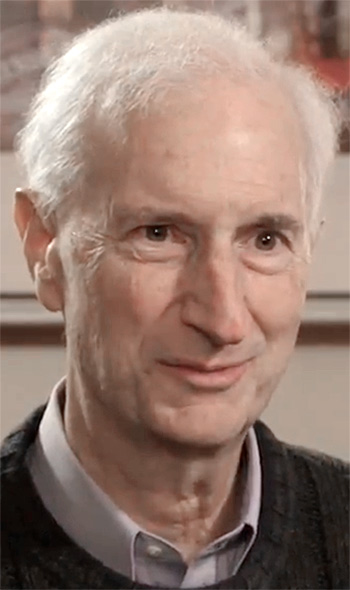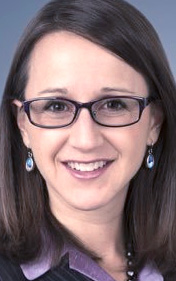/ Featured Blogs
Over the Top Services at the ITU PP-2018: Considering the Pittsburgh Massacre
 This past Saturday, a self-professed neo-Nazi massacred eleven worshipers at synagogue services in Pittsburgh. The killer was reported to have lived on and was incented by an "Over the Top (OTT)" service purposely established to facilitate extremist activities known as Gab. Within hours, the cloud service providers hosting their services announced they would no longer provide hosting services. Presumably, the threat of both potential civil litigation liability among other penalties, as well as adverse publicity, provided the motivation.
This past Saturday, a self-professed neo-Nazi massacred eleven worshipers at synagogue services in Pittsburgh. The killer was reported to have lived on and was incented by an "Over the Top (OTT)" service purposely established to facilitate extremist activities known as Gab. Within hours, the cloud service providers hosting their services announced they would no longer provide hosting services. Presumably, the threat of both potential civil litigation liability among other penalties, as well as adverse publicity, provided the motivation.
- By Anthony Rutkowski
- Comments: 3
- Views: 8,338
Internet Society Seeks Nominations for 2019 Board of Trustees
 Are you passionate about ensuring the Internet remains open, globally-connected, secure and trustworthy - for everyone? Do you have experience in Internet standards, development or public policy? If so, please consider applying for one of the open seats on the Internet Society Board of Trustees. The Board of Trustees provides strategic direction, inspiration, and oversight to advance the Society's mission.
Are you passionate about ensuring the Internet remains open, globally-connected, secure and trustworthy - for everyone? Do you have experience in Internet standards, development or public policy? If so, please consider applying for one of the open seats on the Internet Society Board of Trustees. The Board of Trustees provides strategic direction, inspiration, and oversight to advance the Society's mission.
- By Dan York
- Comments: 0
- Views: 7,651
Amid Shutdown, Gab.com Claims Free Speech Infringement While Many Others View Them as Hate Site
 The controversial site gab.com has been shut down by GoDaddy and given 2 days to move the domain elsewhere. The deadline expires at midnight tonight Irish time. In recent days the site has seen itself become increasingly disconnected as various service providers and online platforms including PayPal have shut the door to them. At present the site is displaying this notice...
The controversial site gab.com has been shut down by GoDaddy and given 2 days to move the domain elsewhere. The deadline expires at midnight tonight Irish time. In recent days the site has seen itself become increasingly disconnected as various service providers and online platforms including PayPal have shut the door to them. At present the site is displaying this notice...
- By Michele Neylon
- Comments: 1
- Views: 9,209
Obstacles in OneWeb’s Negotiations with Russia
 This case illustrates the fact that political, security, and financial negotiations may be as difficult as designing satellites and rockets for a would-be global Internet service provider. OneWeb is investing billions of dollars in a constellation of low-Earth orbit (LEO) Internet-service satellites. In 2015 they placed launch orders for 21 Russian-made Soyuz rockets.
This case illustrates the fact that political, security, and financial negotiations may be as difficult as designing satellites and rockets for a would-be global Internet service provider. OneWeb is investing billions of dollars in a constellation of low-Earth orbit (LEO) Internet-service satellites. In 2015 they placed launch orders for 21 Russian-made Soyuz rockets.
- By Larry Press
- Comments: 0
- Views: 9,995
Has Internet Governance Become Irrelevant?
 When the Internet outgrew its academic and research roots and gained some prominence and momentum in the broader telecommunications environment it found itself to be in opposition to many of the established practices of the international telecommunications arrangements and even in opposition to the principles that lie behind these arrangements.
When the Internet outgrew its academic and research roots and gained some prominence and momentum in the broader telecommunications environment it found itself to be in opposition to many of the established practices of the international telecommunications arrangements and even in opposition to the principles that lie behind these arrangements.
- By Geoff Huston
- Comments: 1
- Views: 9,595
Law Enforcement Agencies Will Have Authority on Registries and Registrars
Accessing Whois information and acting on a litigious domain name is becoming a nightmare for law enforcement agencies. Law enforcement agencies must have an access to the information provided by registrants in the Whois database and, in specific cases, have authority to act FAST on a domain name. The EU has a solution for this and it's coming in 2020.
- By Jean Guillon
- Comments: 13
- Views: 13,380
The ITU 2018 Plenipotentiary Conference: An Analyst’s Long-Arc Perspective
 Next Monday, 29 October, most of the formal representatives of the world's nations will convene for three weeks to collectively consider the most significant developments in global network communications networks and services, and make multilateral adjustments in a treaty instrument signed by almost every country at the end. They will also elect heads of the various International Telecommunication Union (ITU) secretariats and permanent bodies for the next four years.
Next Monday, 29 October, most of the formal representatives of the world's nations will convene for three weeks to collectively consider the most significant developments in global network communications networks and services, and make multilateral adjustments in a treaty instrument signed by almost every country at the end. They will also elect heads of the various International Telecommunication Union (ITU) secretariats and permanent bodies for the next four years.
- By Anthony Rutkowski
- Comments: 0
- Views: 7,638
A Look at ICANN’s Creation
 My story begins in ancient times when dinosaurs ruled the earth. It was a time when you could download a movie onto your desktop computer through your 56k dial-up connection if you had a few days. It was a time when more people were on the Minitel in France than on the Internet globally and when the Republic of Korea could fit all of its internet users into one small hotel room. I know because I met them all in that room.
My story begins in ancient times when dinosaurs ruled the earth. It was a time when you could download a movie onto your desktop computer through your 56k dial-up connection if you had a few days. It was a time when more people were on the Minitel in France than on the Internet globally and when the Republic of Korea could fit all of its internet users into one small hotel room. I know because I met them all in that room.
- By Ira Magaziner
- Comments: 0
- Views: 7,546
The 2018 IPv4 Market: Third Quarter Report
 With strong performances across all market segments, the third quarter of 2018 demonstrated that there is still a voracious appetite for IPv4 numbers. At the end of the third quarter this year, the number of IPv4 transactions and volume of IP addresses traded in the ARIN market surpassed third-quarter totals for all prior years. An additional 18 million numbers were transferred in Q3, putting the total for the year at nearly 42 million numbers, a more than 160% jump compared to this same time last year.
With strong performances across all market segments, the third quarter of 2018 demonstrated that there is still a voracious appetite for IPv4 numbers. At the end of the third quarter this year, the number of IPv4 transactions and volume of IP addresses traded in the ARIN market surpassed third-quarter totals for all prior years. An additional 18 million numbers were transferred in Q3, putting the total for the year at nearly 42 million numbers, a more than 160% jump compared to this same time last year.
- By Janine Goodman
- Comments: 0
- Views: 9,644
DK Hostmaster Wins Award for Transparency and Trust Online
 The nonprofit Alliance for Safe Online Pharmacies (ASOP Global) presented its annual Internet Pharmacy Safety E-Commerce Leadership Award to .DK Hostmaster at the 2018 ICANN63 today in Barcelona, Spain. The domain name administrator for Denmark, DK Hostmaster, was selected for the award based on their commitment to ensuring citizen safety by maintaining transparent WHOIS data, proactively enforcing identity accuracy policies to increase consumer trust and safety online.
The nonprofit Alliance for Safe Online Pharmacies (ASOP Global) presented its annual Internet Pharmacy Safety E-Commerce Leadership Award to .DK Hostmaster at the 2018 ICANN63 today in Barcelona, Spain. The domain name administrator for Denmark, DK Hostmaster, was selected for the award based on their commitment to ensuring citizen safety by maintaining transparent WHOIS data, proactively enforcing identity accuracy policies to increase consumer trust and safety online.
- By Libby Baney
- Comments: 0
- Views: 7,705